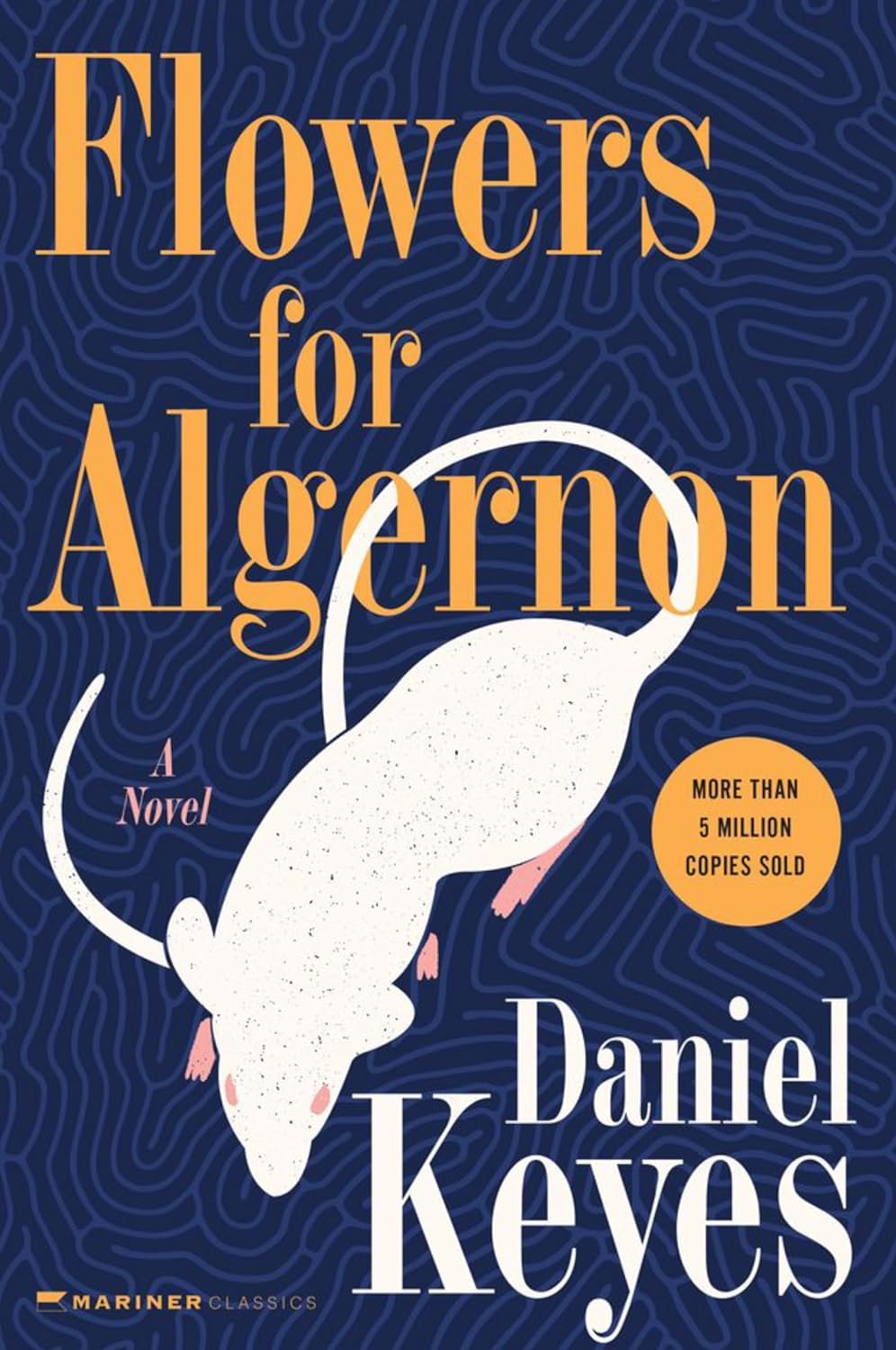Flowers for Algernon

Review
Flowers for Algernon is a Hugo and Nebula award-winning novel about Charlie Gordon, a man with intellectual disabilities who undergoes surgery to enhance his cognitive abilities. While it is a beautifully crafted narrative, it failed to hold my attention.
Flowers for Algernon is written as a series of progress reports by Charlie, both before and after his surgery. skillfully utilizes Charlie’s writing style to convey the gradual improvement in his intellect, and does an equally remarkable job towards the end: it is an emotional moment when the typos reappear after a hundred pages, indicating Charlie’s cognitive decline.
But, the storyline itself felt predictable: I anticipated that it would depict Charlie’s realization that his seemingly simple world had unknown complexities—that his friends were not truly his friends, and that his family was not the protective support system he had hoped for. Several times while reading, I could see what must be coming in the next few pages, which left me to grit my teeth and push through to the next plot point. At other times, especially when Charlie was enduring the abuse of his mother, I contemplated abandoning the book altogether.
There are some interesting parallels between Flowers for Algernon and Blindsight and Echopraxia: specifically regarding how altering the mind changes one’s identity, and if the change is significant enough, it creates a different person altogether. Flowers for Algernon’s depiction of Charlie literally seeing the “other person” out in the world was a clever approach to illustrate this concept.
In the end though, a book that has some great components, but doesn’t come together for me.